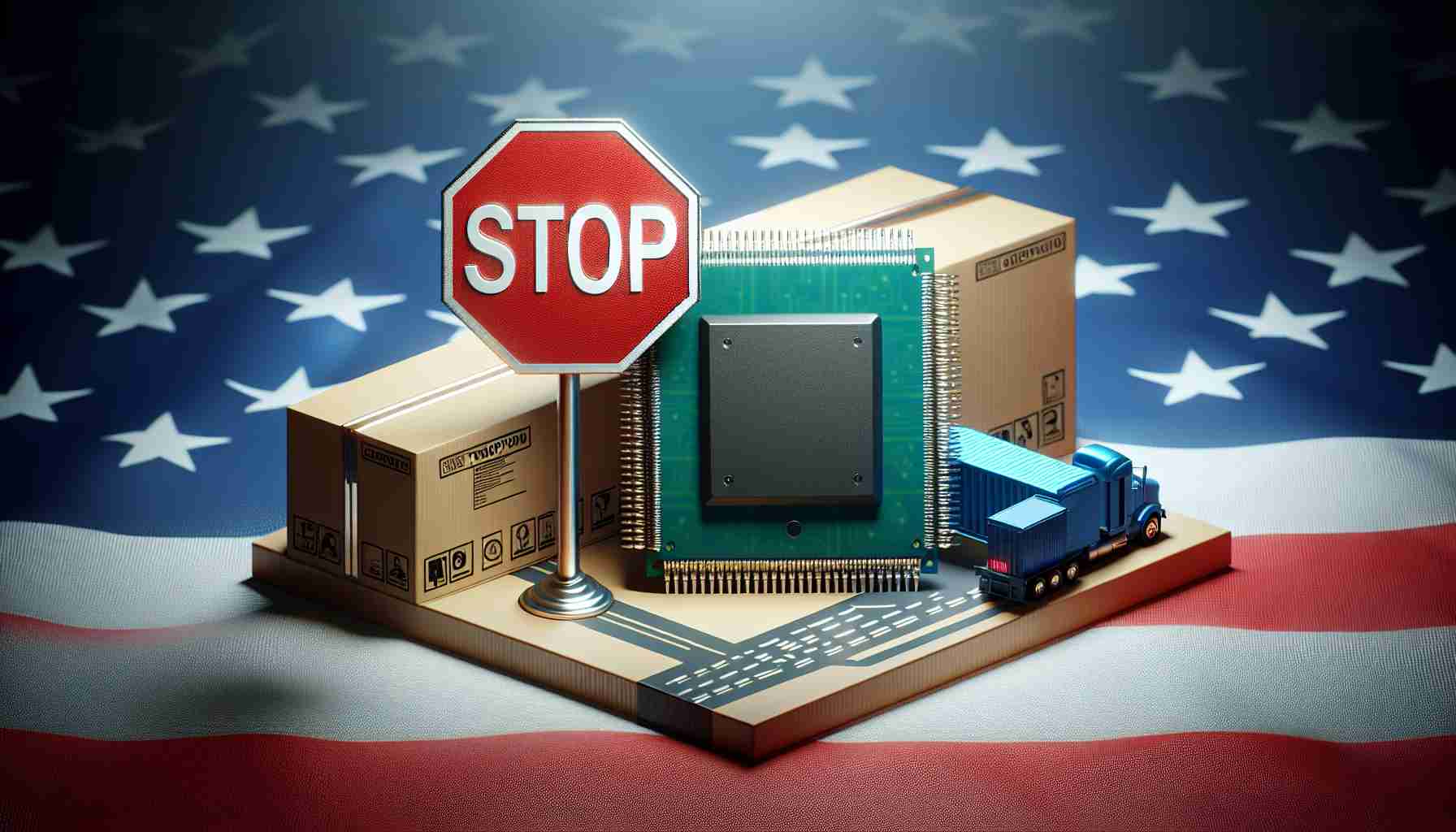The U.S. Commerce Department puts an end to export permissions for chips made by American tech giants, Intel and Qualcomm, that were destined for use in Huawei’s laptops and mobile phones. The announcement was made after foreign media reports surfaced on May 8, indicating a significant policy enforcement by the U.S. government.
Intel’s latest contribution to Huawei’s tech arsenal, the MateBook X Pro featuring the new Core Ultra 9 processor, has become the center of political scrutiny. Republican legislators have voiced their discontent with the Commerce Department’s initial approval of this chip sale to the Chinese company.
Amid the stringent approach taken by China-critical members of the Republican Party, the U.S. administration is ramping up its efforts to curb Huawei’s access to advanced technology. This withdrawal of export licenses affects not only Huawei’s sourcing strategies but also the American chipmakers’ business dealings.
Intel is already navigating through a slump in the semiconductor market, as evidenced by their recent forecast, which signaled a downturn that erased billions from their market value. For Huawei, placed on a trade blacklist by the U.S. in 2019 due to national security concerns, the road has been challenging but not entirely restrictive, given the transactions that proceeded with government-approved licenses.
Qualcomm, on the flip side, may face future hurdles in supplying chips to Huawei, although their 5G tech licenses remain in effect until early 2025, with renewal discussions already underway. Analysts have pointed out Huawei’s resilience and adaptability in offsetting the American sanctions, citing their success in launching a new mobile phone with a sophisticated chip, potentially bypassing U.S. sanctions, and witnessing a dramatic spike in smartphone sales in early 2024. Further bolstering their revival, Huawei has seen remarkable growth stemming from its smart car parts division in the previous fiscal year.
Factual Additions to the Topic:
– Huawei Technologies Co., Ltd. has been striving to achieve self-sufficiency in semiconductors. In response to the U.S. trade restrictions, it has been investing in its own chipset division, HiSilicon, to develop in-house chip design capabilities.
– Impact on the global semiconductor supply chain is significant, as Huawei has been one of the largest buyers of semiconductors. This can lead to wider implications for other tech companies and supply network partners.
– The U.S. government has cited concerns that Huawei’s equipment and technology could be exploited by the Chinese government for surveillance and espionage as reasons for the restrictions.
– Huawei’s inclusion in the U.S. Entity List requires U.S. companies and those using U.S. technology to obtain a special license to sell to Huawei.
– The conflict over semiconductor exports is part of a larger trade and technology war between the U.S. and China, which has led to both countries seeking technological self-reliance and supply chain security.
Key Questions and Answers:
– Why did the U.S. government halt the semiconductor exports to Huawei? The U.S. government cited national security concerns as the primary reason, fearing that the Chinese government could use Huawei’s technology for surveillance and espionage activities.
– How does this halt impact Huawei and U.S. chipmakers? Huawei faces disruptions in its supply chain and is pushed towards self-reliance. U.S. chipmakers lose a significant client, potentially reducing their revenue and affecting their market position.
Key Challenges or Controversies:
– Navigating international trade laws and maintaining competitive advantage without certain key markets.
– Balancing national security concerns with economic interests, particularly for U.S. companies that stand to lose out on significant business.
Advantages and Disadvantages:
– Advantages: For the U.S., the curb may safeguard against potential national security threats. It could also stimulate domestic production and reduce reliance on foreign technology.
– Disadvantages: U.S. chipmakers may suffer economic losses due to the policy. Huawei and potentially other Chinese tech firms may face increased costs and delays in production due to difficulties in obtaining necessary components.
If you seek further information on the topic, you may consider visiting the U.S. Department of Commerce website at commerce.gov for official announcements and policy details. For a broader understanding of Huawei’s situation, you can go to their official site at huawei.com. Please note that these links are to the homepages of the main domains; specific pages within these domains may provide more detailed information on the topic.
The source of the article is from the blog kunsthuisoaleer.nl
